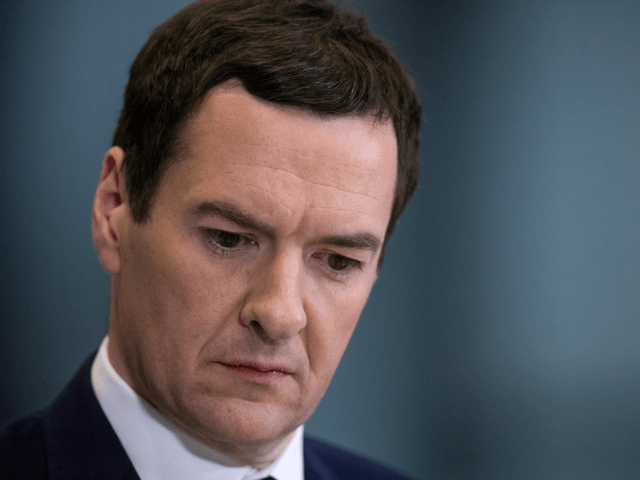LONDON (Reuters) – Chancellor George Osborne said on Wednesday he would introduce an emergency budget if Britain voted to leave the European Union, but 57 of his own Conservative Party’s lawmakers said they would block the measures.
Britons will vote in a referendum on June 23 on whether to stay in the 28-member bloc, and the ruling party is profoundly split with Osborne and Prime Minister David Cameron battling for a “Remain” vote while other senior figures campaign for “Leave”.
With opinion polls showing momentum swinging towards Leave, Osborne intensified the tone of his warnings about the consequences of a so-called Brexit, saying he would respond by increasing taxes and cutting spending.
“We would either have to get more money in by raising taxes like income tax or you have to spend less on the big public services like the health service, or the education system or the defence budget,” Osborne said in an interview on BBC radio.
“The country does not have a plan if we quit the EU. We’d wake up in just over a week’s time with no economic plan for our country, with financial instability, with years of uncertainty and you’d have to cut your cloth accordingly. The country would not be able to afford the size of the public services that we have at the moment,” he said.
The official Vote Leave campaign hit back with a withering statement it said was signed by 57 Conservative lawmakers including former party leader and cabinet minister Iain Duncan Smith, among other well-known figures.
“It is absurd to say that if people vote to take back control from the EU that he would want to punish them in this way. We do not believe that he would find it possible to get support in Parliament for these proposals,” the statement said.
“If the Chancellor is serious then we cannot possibly allow this to go ahead … If he were to proceed with these proposals, the Chancellor’s position would become untenable.”
The government currently has a working majority of 17 in the House of Commons.
The war of words represented an escalation in the dramatic internal conflict tearing the Conservative Party apart, and raised the prospect of a government unable to operate normally in the event of a victory for Leave.
(Writing by William Schomberg and Estelle Shirbon; Editing by Guy Faulconbridge)


COMMENTS
Please let us know if you're having issues with commenting.